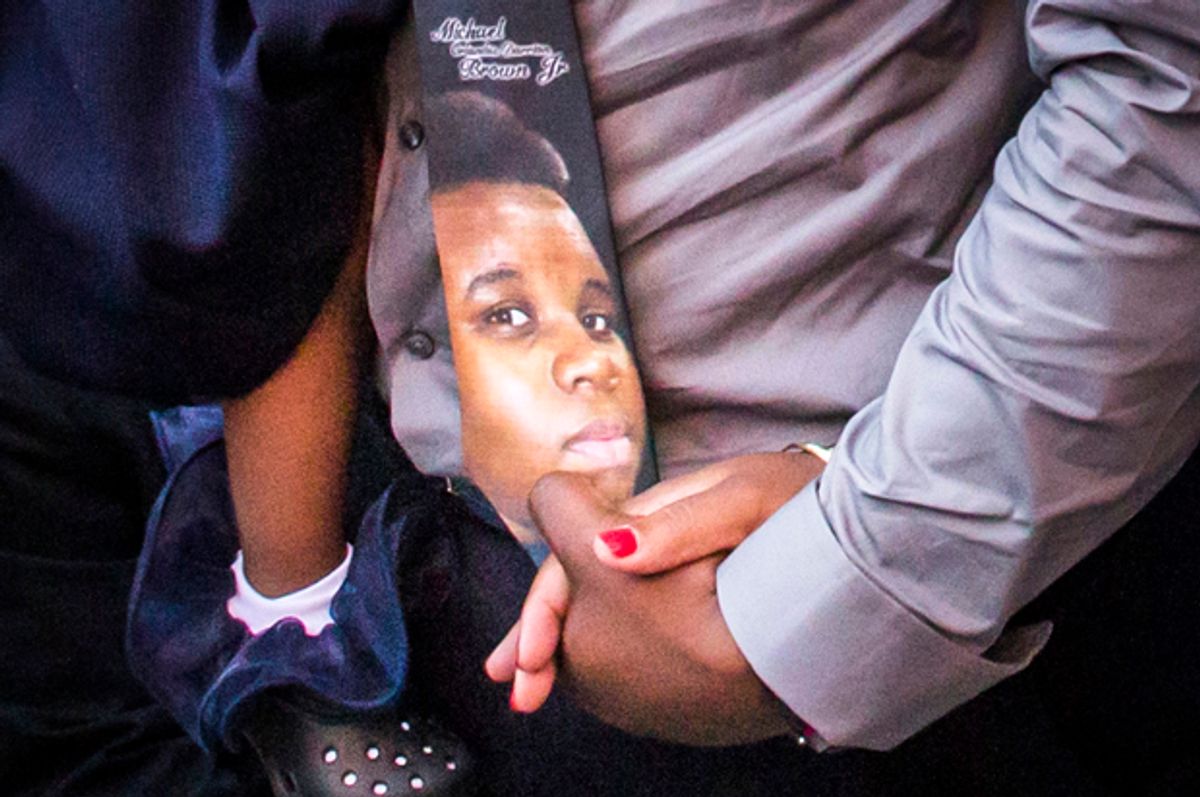I remember the night the Rodney King video first surfaced on Los Angeles television like it was yesterday. In those days you didn't see videos of police beatings unless a news camera happened to catch it --- video cameras were bulky items that people didn't carry around with them. That footage of those police beating a man mercilessly, grainy and distant as it was, sent a shock wave though this city and in a very short period that shock wave was felt around the world. But at the time I think that most of white America probably either thought that this man must have "deserved" what he got or, if they were appalled by what they saw, believed the justice system could not ignore such vivid evidence and would have to punish these officers. Black America knew better, of course, but they too held out hope that the video proved what they had been saying for years.
We all know how that turned out.
It was one of those stunning events that makes you question some of your basic assumptions. I thought we had decided as a society that we were not going to allow the police to beat suspects senseless. Yes, people had complained about it and I knew that it happened. The streets of L.A. were hardly peaceful. But I thought that by the end of the 20th century if the police were caught doing it red-handed there was simply no way they could be exonerated.
The day the verdict came back everyone in my office gathered around the TV in shock. And as we looked outside the windows of our high-rise building over the next few days we watched plumes of smoke all over South L.A. multiply by the hour until the mayor finally told everyone to go home and stay there as the city came under martial law. I watched Reginald Denny get beaten mercilessly on live TV. The 7-Eleven on the corner of an apartment I lived in for years was burned to the ground. It felt like L.A. was coming apart.
It didn't. But it didn't exactly come together either. Many of the same problems that fed into the massive outrage that fueled those riots back in 1992 still exist here and around the nation. Video is everywhere today and so it isn't shocking to see brutality and authoritarian tactics in living color on-screen. If anything, we seem to have become numb to it. Neither is it shocking to see juries come back with a not guilty verdict in high-profile cases. We saw that very recently in the Trayvon Martin case. However much these stories may inflame people and remind us that these problems still exist, most of the time people don't take to the streets beyond candlelight vigils and where there are protests they are usually short-lived.
The Michael Brown case is different. And it is because of the way the authorities have responded. From the disrespectful way they left the body of the victim lying in the street to the way the police released the video of Michael Brown in the convenience store as a way to tar his character, to the full military-style response to the protests, they have demeaned the feelings and concerns of the African-American community in Ferguson.
And all of that is nothing compared to the odd, anomalous decision by prosecutor Bob McCullough to present his case before the grand jury with the clear intention that they not indict officer Darren Wilson. Legal observers say the decision to "present all the evidence"in a mini-trial, including the defense evidence and four hours of testimony by the officer himself, was bizarre.
So, unlike what happened in Florida with Trayvon Martin where a jury believed the prosecutor couldn't prove that George Zimmerman murdered an unarmed teenager beyond a reasonable doubt, what we have in Ferguson is a secret "trial" run by a prosecutor who didn't want to convict. And as with the King case, there is a sense of shock that the justice system can be so rigged. Back in 1992, we thought it was impossible that a jury could look at that tape and say those police officers were not guilty of assault. It was, in essence, our system saying, "you can believe me or you can believe your lying eyes." In Ferguson, at the hands of a prosecutor manipulating the system for his own ends, the system failed again. And this time the relatives of Michael Brown could not even get a public trial. There was certainly nobody representing the victim before the grand jury.
Before he told the world there would be no indictment, the prosecutor made a self-serving, petulant statement in which he blamed social media for stoking the unrest in Ferguson and excoriated eyewitnesses for being inconsistent. As promised, he released the "evidence" at the end of his statement. One can only surmise that he thinks the court of public opinion will exonerate Darren Wilson. His unctuous performance guarantees that it will not exonerate him.
Every once in a while a case comes along that vividly illustrates how easily our system of justice is manipulated and it shocks the collective conscience into recognition that something fundamental is very, very wrong. This is one of those cases. Let's hope it doesn't go wrong like '92. That didn't help anything, obviously. Here we are again.

Shares